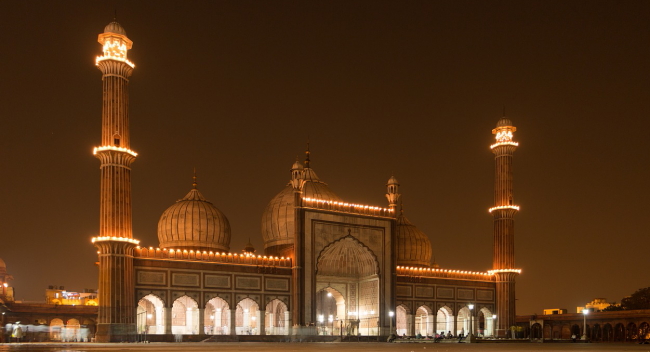SUNSET SATURDAY, MAY 8 and SUNSET WEDNESDAY, MAY 12: The holiest night of the Islamic year arrives for Muslims worldwide, with the Night of Power (Laylat al-Qadr); though Muhammad did not reveal precisely when the Night of Power occurred, the 27th day of Ramadan is a traditionally held date (May 8, this year). Known by many names—Night of Value, Night of Destiny, Night of Measure—Muslims note the anniversary of the night the Quran was first revealed to the Prophet Muhammad via the angel Gabriel.
It is believed that on this sacred night, verses of the Quran were relayed to Muhammad in the year 610 CE, and angels descended to earth for the event. If a devoted Muslim prays in earnest for forgiveness of sins on Laylat al-Qadr and reads the Quran, it’s believed that the night is “better than 1,000 months.”
Did you know? The first Eid was observed by the Prophet Muhammad in 624 CE.
RAMADAN & EID UL-FITR IN A CONTINUING PANDEMIC
Following Ramadan, Muslims celebrate with a joyous festival known as Eid ul-Fitr. For Eid, worship is performed in congregation; visits are paid to family and friends; sweets are partaken in and shared; and carnivals, vacations and gatherings are common. Although more Eid events will take place this year than did last year, pandemic restrictions are still being enforced at most public events worldwide.
Did you know? In Egypt, Eid ul-Fitr is typically an occasion for neighborhood carnivals; in Asia, a celebratory dish contains toasted sweet vermicelli noodles and dried fruit; in Saudi Arabia, wealthy families buy large quantities of rice and other staples and leave them anonymously on the doorsteps of those less fortunate.
Looking for Eid recipes? Sweet and savory selections are available courtesy of the BBC. For sweet recipes, check out NPR.org. For even more, try the New York Times.
‘EID SA’ID!’
(HAPPY EID!)
The grand holiday of Eid al-Fitr is referred to in many ways: the Sugar Feast, Sweet Festival, Feast of the Breaking of the Fast and Bajram, to name just a few. While adherents typically would spend ample time enjoying the company of family and friends and attending carnivals and fireworks displays, social distancing measures may restrict some of these types of activities in 2021.
EID: A UNIVERSAL CELEBRATION
With nearly one-quarter of the world’s population observing the Islamic faith, it is significant to note that, unlike most Muslim holidays—which may or may not be observed by all Muslims each year—the two Eid holidays (Eid al-Adha and Eid al-Fitr) are always commemorated universally.

